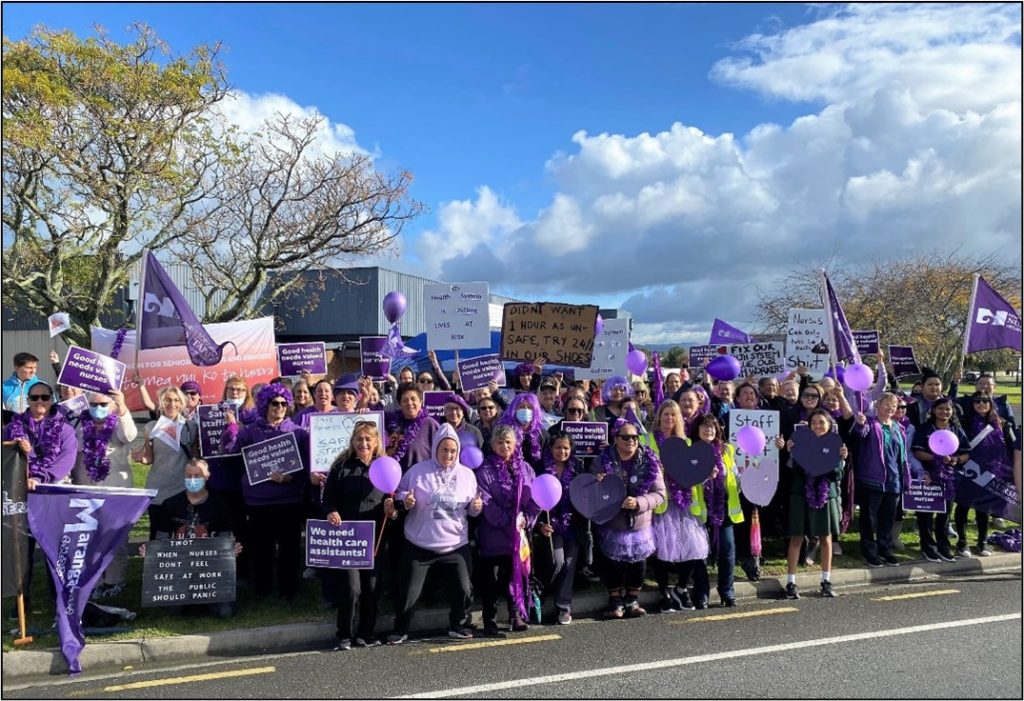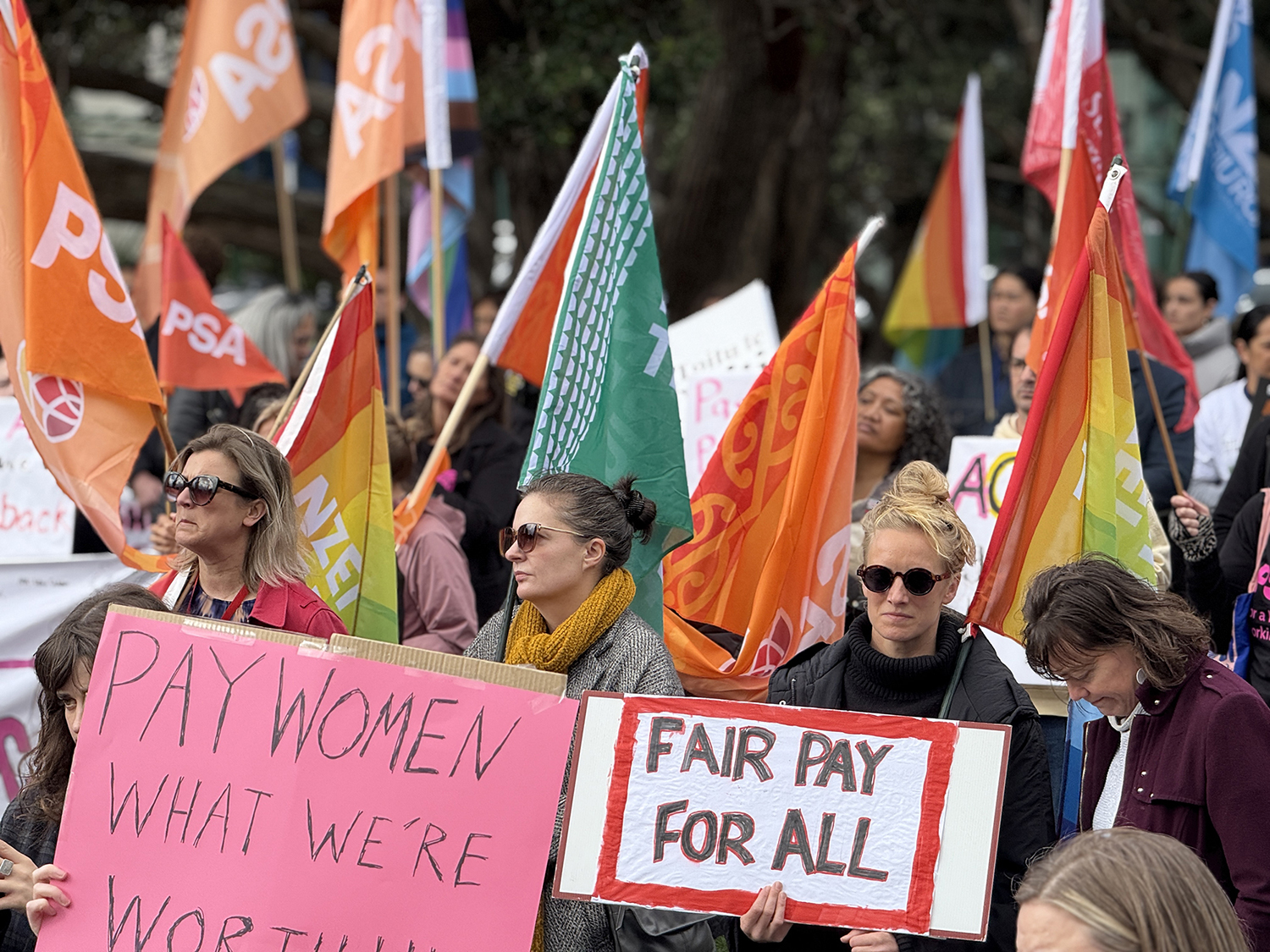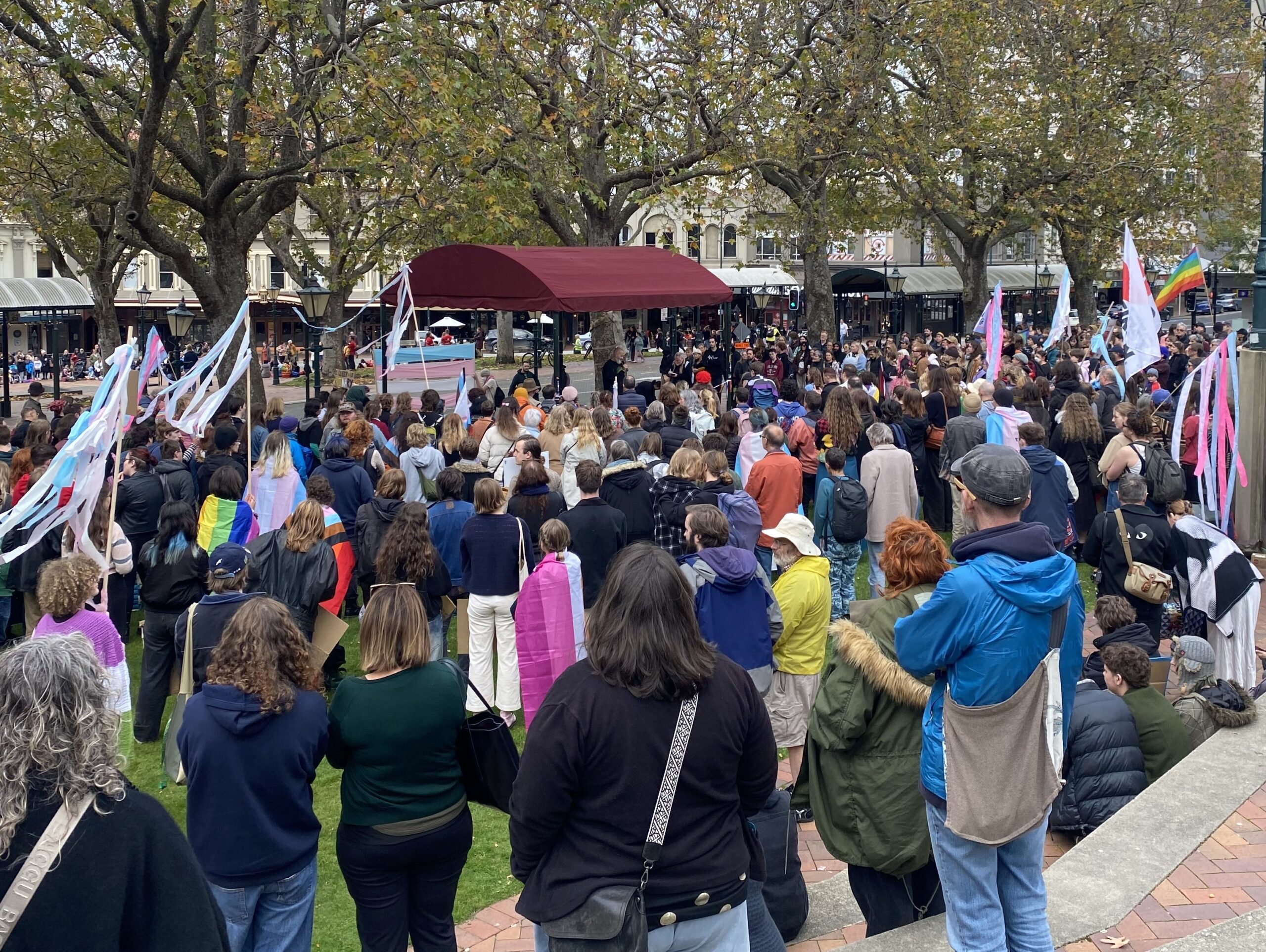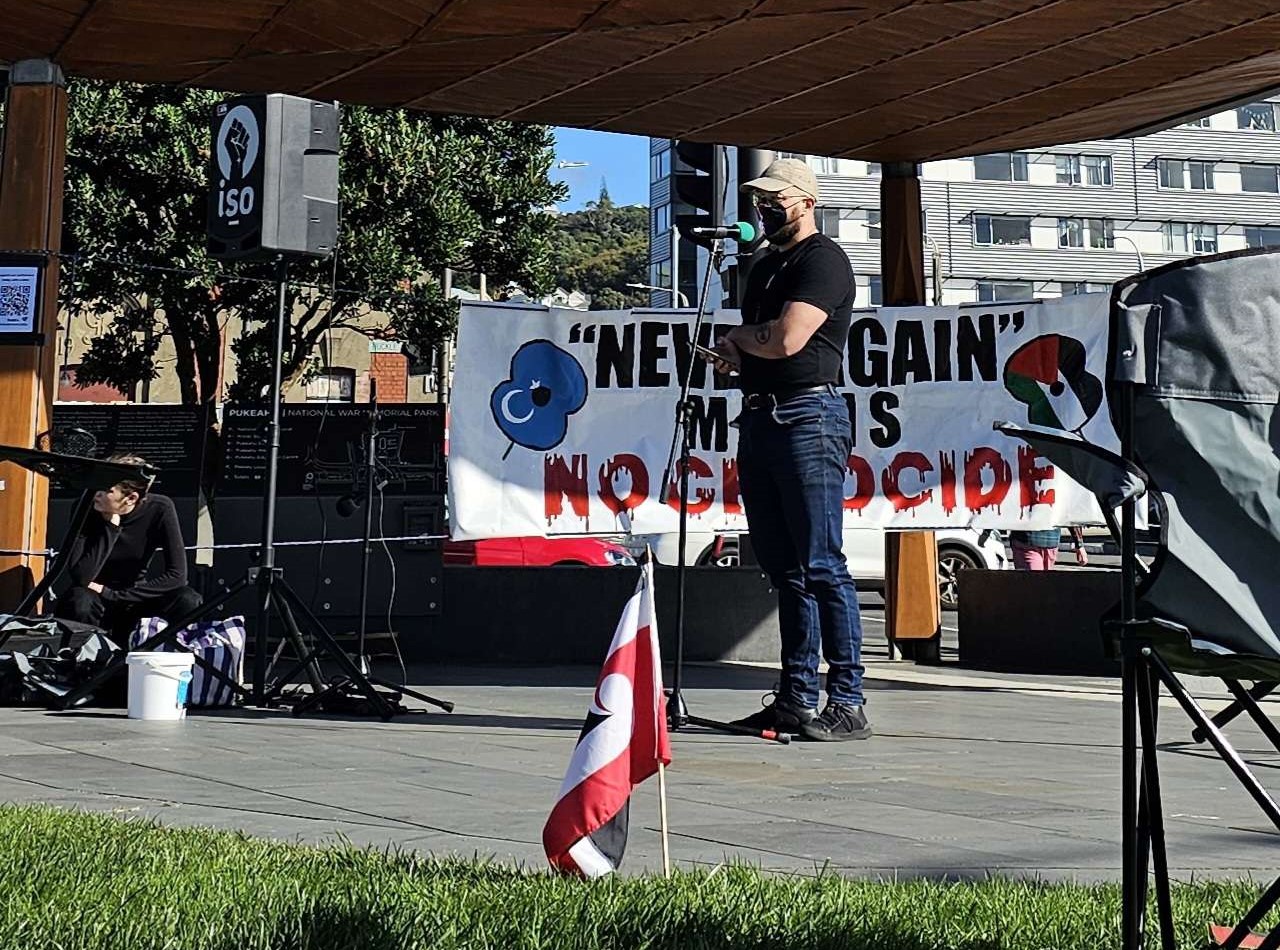Te Whatu Ora, under Minister of Health Dr Ayesha Verrall, failed in its bid to get an Employment Court decision that an impending strike by NZNO nurses would be unlawful. The Court’s rejection of the Ministry’s application for an injunction enabled a lawful strike to go ahead on 24 May. Nurses and health care assistants on acute care Ward 5 at Gisborne Hospital walked off the job for one hour and were joined by supporters outside the hospital.
An NZNO media release states:
NZNO Ward 5 delegate at Gisborne Hospital Christine Warrander said it was bewildering that Te Whatu Ora chose to expend thousands in resources and taxpayer’s money on fighting a one-hour strike, instead of putting those resources towards fixing the significant health and safety problem they have.
Labour’s attempt to weaken workers’ right to strike over a health or safety issue is a threat to all unionists. The right to strike in Aotearoa is already highly restricted. Strikes over: political issues, solidarity with other workers, furtherance of Fair Pay Agreements, disputes over issues like sexual harassment and racism are all unlawful. In fact, it is easier to say all strikes are unlawful except in two cases.
The first case is the familiar one of striking over collective bargaining once a collective agreement has expired. Even here the unions must jump through hoops of secret ballots and giving notice. The notice provisions are tighter for “essential services” and passenger transport, which serve to help the employers organise to defeat the strikers’ objectives.
The only other instance of a lawful strike is over safety or health. Section 84 of the Employment Relations Act states that such actions are lawful if the workers “have reasonable grounds for believing” that the strike is justified on the grounds of safety or health. In this case there is no requirement for a secret ballot. However, the law requires a strike notice been given. In the Gisborne case, for example, the NZNO had to comply with the essential service provisions for giving a strike notice that included time, date and place, and named the 24 nurses and care assistants who were to walk out.
It is a wonder that Section 84 strikes are not more common. The intensity of exploitation that has increased over the years in white-collar jobs is causing long hours, breaks not being taken and stress leading to widespread ill health. If the issue of workloads is not addressed in collective agreement bargaining, and it seldom is, it is open to the unions to use Section 84 to take up the health effects of over-work.
It speaks volumes of what the Labour Party is really about that it has attempted to restrict workers’ rights to use Section 84 to defend themselves from ill health. This follows the government making strikes over Fair Pay Agreements unlawful and failing to repeal amendments to the Employment Relations Act made by National that erected more barriers for unions to clear in order to take effective strike action. The law allows employers to sue unions for their losses when strikes are unlawful. Labour was the architect of the restrictive Act which came into effect in 2000.
The Gisborne Hospital strike has highlighted the use of Section 84 strikes. Hopefully, other workers will use Section 84 to fight back against unhealthy conditions.
Header photo courtesy of NZNO









